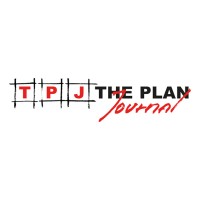
THE PLAN Journal
THE PLAN Journal (TPJ) intends to disseminate and promote innovative, thought-provoking and relevant research, studies and criticism in architecture and urbanism. The criteria for selecting contributions will be innovation, clarity of purpose and method, and potential transformational impact on disciplinary fields or the broader socio-cultural context. The ultimate purpose of the TPJ is to enrich the dialog between research and professional fields, in order to encourage both applicable new knowledge and intellectually driven modes of practice. (Maurizio Sabini)






